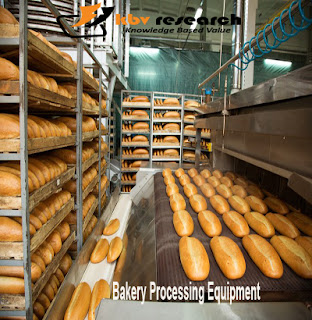How Medical Fiber Optics is improving the healthcare facilities
Here’s why Medical Fiber Optics are Making a trending in the Industry. As healthcare providers make an effort to discover biomedical instruments that are technically more advance and will make the diagnosis, checking, and treatment more efficient. There is increased use of endoscopic procedures as it is beneficial in the early diagnosis of cancer and many other chronic diseases, which in turn increasing the demand for medical fiber optics. Moreover, the growing adoption of technologically advanced products in healthcare sectors and rising awareness among the people about minimally invasive surgeries are the key factors in driving the adoption of medical fiber optics in designing instruments.
What is Medical Fiber Optics?
Before understanding what is Medical Fiber Optics, we should know what fiber optics means. Fiber optics also called optical fiber is a thin and flexible fiber made up of glass or plastic. In this fiber data, voice, images, and information are transmitted in the form of the light pulse by internal reflection. fiber optics are commonly used in telephone, television, and the internet. Medical fiber optics is not anything different from optic fiber, in fact, it is one of the application areas of the optic fiber in medicines. A bundle of such fibers is used to design biomedical instruments and devices. Medical Fiber Optics are commonly used in the imaging and illumination components of medical instruments such as endoscopy.
Types of Medical Fiber Optics
Multimode Optical Fiber
This type of optical fiber allows the propagation of more than the type of light at a given time. The core diameter of Multimode Optical Fiber is a little thicker than that of Single-Mode Optical Fiber which ranges from 50 to 60 micrometers. Due to higher thickness, there is more attenuation in them. It is suitable for short-distance runs, and cheaper in price.
Single-Mode Optical Fiber
as the name suggests, this type of fiber propagates only one type of light at a time. The diameter of the core is smaller and about 9 micrometers. Since the fiber is very thin, so there is not much attenuation.it is suitable for application at long distances but more costly than Multimode Optical Fiber.
Benefits of Medical Fiber Optics
Medical Fiber Optics has become a valuable asset in the healthcare field. As they possess various useful features and have many advantages which include the following:
- They are considered very safe to use even inside the human body.
- Medical Fiber Optics are resistant to electromagnetic interference.
- They are non-toxic and chemically inert.
- These devices are small and compact in size therefore occupy less space.
- Thin and flexible so can be easily inserted in the body cavity to take images and treat the internal parts.
- Medical Fiber Optics is also tolerant of high temperatures.
Application of Medical Fiber Optics
For many decades optics have been used for diagnosis and to provide therapeutic treatment of the patients. The arrival of optical fiber in the twentieth century has resulted in designing new medical devices and instruments and it brought a revolution in the healthcare sector. Manipulation of light and images taken from optical instruments help doctors to have better and improved visual examination and diagnosis of a disease.
Illumination and endoscopy
Medical Fiber Optics is most commonly used in endoscopy in which it gives improved illumination and magnification of the internal cavities of the body. It is beneficial in the detection of disease, surgical guidance, to investigate symptoms, and performing biopsies. Light possesses energy and that energy is accomplished to interact with the biological tissues and organs. Therefore it facilitates the diagnosis and analysis of the internal organs. This property is exploited in endoscopy.
Endoscopy is used in routine examinations of the colon, stomach, and esophagus. Through endoscopy, surgical tools are used for cutting and illumination to perform surgery. In endoscopy, high power lasers are used if it is required to destroy certain tissue with the used of endoscopy.
Biomedical Sensing
It is safe to measure chemical, biological, and physiological parameters of the body using Biomedical Sensing. It has a unique feature that it doesn’t interfere with other parameters and is remotely controllable in nature. Biomedical Sensing is nowadays widely used in monitoring various parameters like heart rate, blood velocity, body temperature, etc. Medical Fiber Optics are also used in the Laser Signal Delivery system.
Minimally invasive surgery (MIS)
A new trend of minimally invasive surgery (MIS) has been introduced in the healthcare sectors for performing minor surgeries. It eliminates the need to cut and painful invasion. MIS also minimizes post-surgery pain and discomfort. Fiber optics are also exploited in medical imaging, sensing devices, MRI, PET, and CT scans.
The bottom line
The Medical Fiber Optics Market has been witnessing swift growth due to the rise in the awareness about the minimally invasive surgical procedure and more adoption of the advanced technological instruments and equipment. These factors are boosting the demand for Medical Fiber Optics in the healthcare sectors. Medical Fiber Optics are widely used in endoscopy procedures that are beneficial in early diagnosis and treatment of diseases.
Nowadays with evolving technology, lasers are also used in dentistry and cosmetology, and thereby it is exploring the application of Medical Fiber Optics in biomedical sectors. Although the higher cost of medical fiber optics is likely to obstruct the market growth. However, the advantages associated with the Medical Fiber Optics in medical instruments and equipment are encouraging healthcare providers to adopt such products.



Comments
Post a Comment